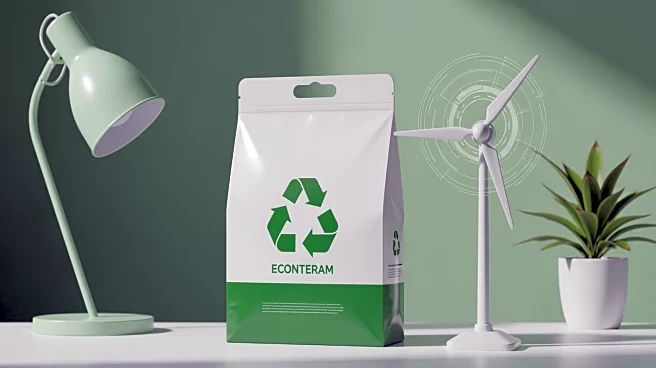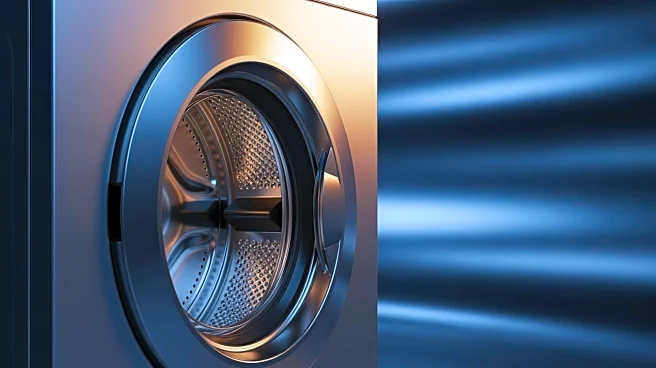What's Happening?
Haleon has announced ambitious sustainability goals aimed at reducing its environmental impact through innovative packaging solutions and carbon emission reductions. The company plans to decrease its use
of virgin petroleum-based plastic by 10% by 2025 and by a third by 2030, using its 2022 consumption levels as a baseline. This initiative includes optimizing packaging designs and developing new formats that incorporate recycled plastic and bio-resins. Haleon aims to make all its packaging recycle-ready by 2025 and fully recyclable or reusable by 2030. Additionally, Haleon has committed to achieving net zero carbon emissions across its value chain by 2040, aligning with The Climate Pledge and Race to Zero initiatives. By 2030, the company plans to achieve a 100% reduction in its net Scope 1 and 2 emissions from a 2020 baseline.
Why It's Important?
Haleon's commitment to sustainable packaging and carbon emission reduction is significant for the healthcare industry, which is increasingly under pressure to adopt environmentally friendly practices. By reducing reliance on virgin plastics and enhancing recyclability, Haleon is setting a precedent for other companies in the sector to follow. The move towards net zero emissions reflects a growing trend among corporations to address climate change proactively. This strategy not only helps mitigate environmental impact but also aligns with consumer demand for sustainable products, potentially enhancing Haleon's market position and brand reputation. The company's efforts could lead to broader industry shifts, encouraging competitors to adopt similar sustainability measures.
What's Next?
Haleon plans to continue advancing its sustainability strategy by working closely with partners and suppliers to push boundaries in sustainable innovation. The company has already entered into a Virtual Power Purchase Agreement with Schneider Electric and other companies to support a new solar farm in Europe, indicating its commitment to renewable energy sources. As Haleon progresses towards its 2030 and 2040 goals, it will likely face challenges in managing complex Scope 3 emissions, which involve indirect emissions from its supply chain. Continued collaboration with industry partners and adherence to international climate initiatives will be crucial for Haleon to achieve its ambitious targets.
Beyond the Headlines
Haleon's sustainability initiatives highlight the ethical responsibility of corporations to address environmental issues. By embedding climate action across its supply chain, Haleon is not only reducing its carbon footprint but also promoting health inclusivity. This approach underscores the interconnectedness of environmental sustainability and public health, suggesting that efforts to improve one can positively impact the other. As Haleon continues to innovate, it may inspire other companies to integrate sustainability into their core business strategies, potentially leading to long-term shifts in industry standards and consumer expectations.










